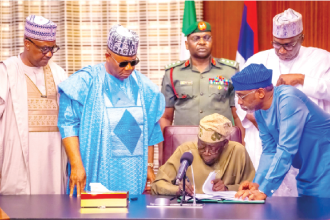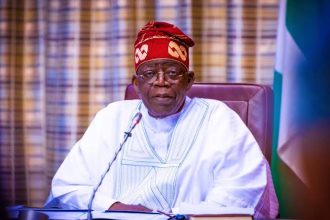The Minister of State, Budget and National Planning, Prince Clem Agba, has reiterated the commitment of the Federal Government to reducing the lifelong consequences of poverty in the country.
Agba gave the assurance at the National Validation meeting on the draft National Social Protection Policy on Monday in Abuja.
He identified poverty as a challenge in the country, noting that available statistics from the National Bureau of Statistics showed that about 40 per cent of the population live below the poverty line.
Agba, who stated that poverty in Nigeria was multidimensional, however, said that government had put in place different interventions to reduce poverty and mitigate its impact in the country.
He listed some of the interventions programmes initiated by government to reduce poverty to include the National Youth Investment Fund and the N-power government enterprise empowerment programme.
“And most recently, the National Poverty Reduction and Growth Strategy among others to finds solutions to the issue of poverty.”
He explained that the National Social Protection Policy covered a range of policies and programmes needed to reduce the lifelong consequences of poverty and exclusion.
The minister said that the review of the policy was expected to accommodate some emerging issues on social protection and poverty alleviation in the country, which include COVID-19, emergence of urban poor and shock responsiveness.
Earlier, Ms Temi Esteri Fetera, the acting Chief of Social Policy, UNICEF Nigeria and Co-Lead, International Development Partners Group on Social Protection, said UNICEF has been in support of the national social protection policy since the development process of the policy commenced around 2012.
Fetera said that social protection has always existed in Nigeria in some form but it existed in an adhoc and fragmented way, not fully coordinated within a policy framework.
This changed with the active development of the National social protection policy around 2015 and its formal approval in 2017. The policy completed its first cycle and was due for review in 2020.
This validation exercise today is a key step in finalising the draft revised National Social Protection Policy which has been revised to be more robust, while still concise and incorporating emerging issues.
Social protection system strengthening is one of the core focus areas of the work of UNICEF in Nigeria. And one of the things that we did beyond advocating and providing technical assistance for the initial development of the social protection policy framework in Nigeria and the current revision process is the provision of direct technical support to key stakeholders.
” This includes support to the formation and recapacitating of technical working groups comprising key social protection coordinating and implementing ministries, departments and agencies at federal and state levels.”
Also, Shubham Chaudhuri, World Bank Country Director for Nigeria, who joined the event virtually, said that the bank would continue to support the Nigerian government fight poverty.
According to him, world bank has been supporting cash transfers and other programmes.
The News Agency of Nigeria (NAN) reports that the meeting attracted Commissioners of Finance and Budget from the 36 states of the federation and FCT as well as other stakeholders.
News adopted from News Agency of Nigeria (NAN)












